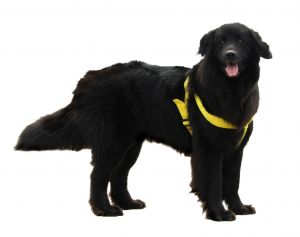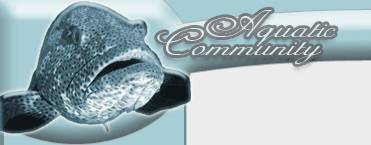Newfoundland Dog


Newfoundland dog information
The Newfoundland dog is a big and heavy dog from the Canadian Newfoundland island. These dogs are affectionately referred to as Newfies or Newfs and are perfectly adapted to a life in a cold climate. They love to play in snow and water, and even without training, the Newfoundland dog has strong water rescue tendencies. The Newfoundland will protect its family in all situations, but is not barky or growly since it prefers to place itself between its family and the potential danger instead of making sounds. In this article you will find a lot of interesting Newfoundland dog information. Did you for instance know that Newfoundland dogs have webbed feet, which makes them excellent swimmers? The coat is naturally highly water resistant.
Newfoundland dog care
When it comes to coat maintenance, you do not have to spend a lot of time on Newfoundland dog care, since brushing the coat a few times a week is enough. The double coat is thick and coarse and a hard brush should be used. Fall and spring are shedding periods and during this time of year you need to spend some more time on Newfoundland dog care and brushing unless you want to vacuum clean your home a lot. The heaviest shedding period comes in spring when the extra thick winter coat is discarded. Frequent baths with shampoo and hot water is not considered good Newfoundland dog care, because it will make the skin dry and remove the natural waterproofing oils from the coat. The Newfoundland dog was developed in a cold part of the world and should be protected from warm weather. During heat spells, the Newfoundland will appreciate an inflatable swimming pool filled with cold water.
Newfoundland dog puppy
The Newfoundland dog puppy looks like a cuddly little bear, but before you decide to bring one home you should ask yourself if you will be able to provide this dog with everything it needs for the coming 9-15 years? You should also determine if the Newfoundland dog is the perfect breed for you. Getting a Newfoundland dog puppy is not a good idea if you dislike dogs that slobber, drool and shed hair. The puppy may be small and cuddly now, but it will soon become a huge dog that needs a lot of space and is difficult to lift. Getting a Newfoundland dog puppy is only a good idea if you really want a big dog. The Newfoundland is peaceful, steady-tempered and only needs moderate exercise. It loves pulling carts and sleds, and will never say no to a swim.
Newfoundland dog training
The Newfoundland dog is an intelligent breed and Newfoundland dog training is not very difficult, but you must keep in mind the most Newfies respond to commands in a very slow and relaxed way. The dog understands what it should do, but it is in no hurry to do so. Early socialization is an important part of Newfoundland dog training, because even though this breed is exceptionally friendly towards humans and pets, male dogs can be aggressive with other males. Newfoundland dog training is usually most successful when it is carried out in a calm and balanced fashion. Newfies are very attentive to the tone of your voice and a NO is normally enough; no need to yell or punish.
Newfoundland dog breeding
Just as the name suggests, Newfoundland dog breeding started on the island of Newfoundland at the North American Atlantic coast. The exact origins of the breed are unknown. Some sources suggest that Vikings may have brought over big black bear dogs around 1000 A.D. and that these dogs thrived in Newfoundland. Others claim that a more reasonable explanation is that generations of Portuguese fishermen brought over large dogs of mastiff type that laid the foundation of Newfoundland dog breeding. As late as the 1880s, there were two distinct working dogs active in Newfoundland. The first one was big, heavily built and had a longish coat – the Newfoundland dog. The other was lighter, more active and had a smooth coat. This was St. Johns dog, a now distinct breed who has contributed to the development of the Labrador Retriever.
Newfoundland dog breeders
Just like most other purebreds, the Newfoundland is associated with a series of specific health problems. When purchasing a Newfoundland it is therefore very important to stick to serious and responsible Newfoundland dog breeders that use vet-checked dogs for breeding and strives to minimize the risk of hereditary disease. A few examples of health problems commonly associated with the breed are hip dysplasia, elbow dysplasia, cystinuria, and subvalvular aortic stenosis (SAS).
Newfoundland dog price
The Newfoundland dog price varies a lot, and it is always important to investigate what you actually get for your money instead of simply picking the lowest Newfoundland dog price. You should for instance find out if the parents of your puppy hail from healthy dogs, and if they have been vet-checked. A serious Newfoundland dog breeder will also pay to have all puppies vet-checked, vaccinated and de-wormed prior to delivery.
More breed resources:
